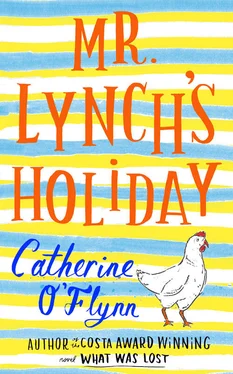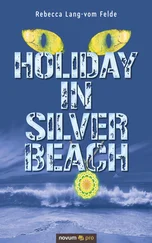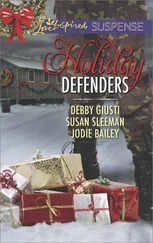‘I didn’t need an office, I was editing computer books. I worked from home.’
‘Oh, right. So that’s going well, is it?’
Eamonn hesitated. ‘Well, no, I was doing it for the first few months, but the company went bust.’ It pained him to admit this. He could imagine his father thinking there was something fundamentally unreal about the idea of working so remotely, so abstractly. He would assume the collapse of the company was a consequence of the intangibility of the work involved.
Dermot, however, looked merely concerned. ‘So are you having to look for work?’
‘No, it’s fine. I’m sorted. I got a new job teaching English.’
‘Oh, teaching. Well, Eamonn, your mother would be very proud. I had the impression that teaching wasn’t your cup of tea.’
The impression was correct, but Eamonn shrugged it off.
‘Well, now, I’d say your Spanish must be tip-top to be able to teach.’
Eamonn found it irksome that people assumed that living abroad somehow magically endowed you with a facility for language-learning. As if rewiring your brain and having to say a different word to the word you naturally wanted to say every time you wanted to speak wasn’t incredibly, almost impossibly, hard, regardless of where you happened to live or what words the people nearby happened to be hurling around, with near-violent rapidity. The assumption was no less irritating for being one that he himself had held, and one that made his apparent inability to rise above the bajo-intermedio standard of Spanish very hard to accept.
‘I’m teaching them English, Dad.’
‘Sure I know that, but obviously you need to explain the grammar and so on in Spanish. You need to provide the translation.’
‘That’s not how it’s done. It’s all done in English. It’s immersive. They pick it up.’
Dermot considered this. ‘Immersive. I suppose you can communicate a lot with what they call “body language”, can you? Hand signals and so on?’
Eamonn rubbed his face. ‘I don’t use hand signals, Dad. They can’t see me, for one thing.’
Dermot looked at him, an expression of dawning realization on his face.
‘Oh … but, that’s great work to be doing. I’m sorry now — I didn’t get you at all at first. What do they call them these days? “Visually impaired”, is it? “Sight-challenged”?’
Eamonn found himself doing something that he hated. It was a noise he made only when talking to one or both of his parents. A kind of impatient sigh, bordering on a grunt. An adolescent habit that he knew was ridiculous in a thirty-three-year-old man.
‘I’m not teaching blind kids. I’m teaching civil servants. It’s all done online or over the phone.’ He paused and then added: ‘No hand signals!’
Dermot was quiet for a few moments and then said: ‘“ Er bekommt keine Luft .”’
Eamonn looked around the room.
‘Oh, yes, I remember that one all right. Linguaphone it was. Like you’re doing. On the tape.’
Eamonn was minded to explain that what he was doing was nothing like Linguaphone, but his father continued.
‘“ Er bekommt keine Luft .” “He can’t breathe.” I took the tapes out of the library, thought I could listen to them on the job, but it never really worked. You’d get very absorbed in that stuff. I remember sailing past a stop full of passengers. I saw them there, but just forgot I was supposed to pull in. Raging they were, but I was listening to a conversation in a restaurant. Can’t remember any of it now.’ He shook his head. ‘Only bit of German I have is, “He can’t breathe.” Funny to remember just that.’
He fell silent again for a few moments before adding, ‘I’m not sure you’d ever really need to say it. You’d think the facial coloration would tell the story well enough.’
When he awoke from the dream he had forgotten where he was. The room was pitch black and for a moment Dermot thought he was back in the bed he’d slept in as a boy. He reached out instinctively for a lamp he hadn’t thought of in over sixty years and as his hand flailed in the dark he remembered everything. He lay there still, trying to control his breathing and contain his sense of loss.
Finding the door eventually, he walked through the darkened apartment to the kitchen. He had gone for a glass of water, but found himself getting instead a beer from the fridge.
He slid open the door to the terrace and sat on a plastic chair. The air was warm and filled with the sound of night creatures vibrating invisibly in the bushes around him. He turned his gaze upwards. He’d become accustomed to city night skies, a meagre scattering of greyish pinpricks in the strip of hazy orange above the streetlights. Here he felt himself pushed back in his chair by the spectacle of the limitless stars and constellations covering every part of the sky above him. He remembered another night, lying on his back in Hamilton’s field, his younger brother by his side. Dominic had woken up scared by noises coming from the kitchen and Dermot had taken him downstairs to show him there were no ghosts or banshees and told him that even if there were, they would certainly flee at the sight of such brave boys. Afterwards Dominic wanted to go out to the field. They lay on their backs, Dominic taking Dermot’s hand and pointing up at the sky. He told Dermot the names of the stars, or at least the names he had given them, which were their own names and those of people and places and things they knew — their whole world mirrored in the night sky above them. He pointed out Sam the cat and old Hamilton’s mad dog Blackie, he pointed out the constellations of their father, their brothers and their sisters, of the biscuit tin and the bar of chocolate hidden in Peggy’s pillow, he pointed out their father’s wife, Teresa, and somewhere further back in the sky at some infinite depth of space and time he showed Dermot the star that was their mother. Dermot scoured the sky now for any trace of these things, but found they had gone.
He was roused from his reminiscences by a low moan. He looked over the balcony in time to see a black shape darting along the side of the pool, realizing then it had just been a dispute between cats, a territorial confrontation in the deep end. He watched the vanquished tabby retreat and take cover in shrubbery and then looked up once more at the stars. It was a sure sign of old age, this constant picking over the past, a growing affliction since Kathleen’s death. He made his way quietly back to his room, sitting on the bed and rubbing his face. He looked at the clock. Another two hours before dawn.
They had been caught. If he ever read the emails, or picked up the seemingly endless ‘Dates for your Diary’ slips that fluttered from his mailbox each time he passed, or took any notice of the forlorn printed reminders stuck on lamp posts all over Lomaverde, he would have known that it was not safe to leave the apartment that day. But he did none of those things and as a result, while he and his father were setting off for a stroll, Jean had spotted them.
‘Oh, Eamonn, lovely! You’re bringing Dermot too.’
He saw the folder under her arm and realized his error. At the same moment he had a flicker of hope that Dermot could be his salvation.
‘Hi, Jean. Can’t make the meeting today unfortunately. You know … Dad’s on holiday. Doing my tour-guide bit.’
‘Oh, of course I understand. Are you off somewhere nice?’
Dermot spoke. ‘We had no plans at all.’
‘Oh.’ Jean looked confused and Eamonn laughed.
‘No, that’s not quite right. I was going to take Dad for a walk, show him around.’
Dermot frowned. ‘Sure I think I know the way around myself now. It’s not what you’d call a metropolis. I can’t imagine I’d get lost.’
Читать дальше












